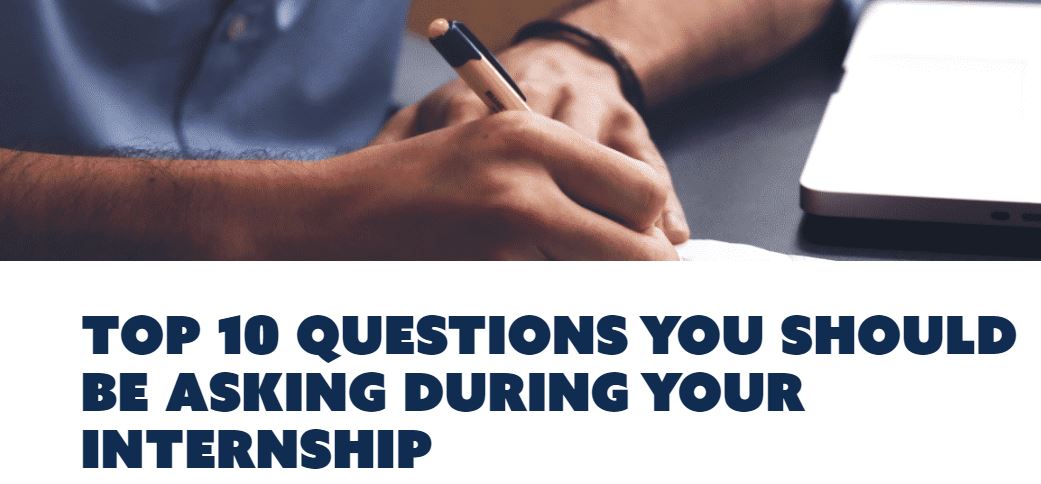1. How can I make myself indispensable to this company this summer?
Jump in! Listen, pay attention to details and ask as many questions as possible. Ask how to do tasks you don’t understand and work hard at the tasks you do understand. It’s important to show how eager and willing you are to learn and to contribute to the company or organization.
2. How can I network through this internship and build connections/relationships for the future?
Communication is key to networking. Be able to tell your story – who you are, where you are from and where you are going. Develop ideas about what you hope to gain from your internship experience and how you want to utilize it in the future, and be able to clearly and quickly convey these to coworkers and colleagues, whether in the break room, the office, or through other avenues, such as LinkedIn.
3. How do I know if I want to pursue a career in this industry in the future?
Overall, do you enjoy what you are doing? Are you satisfied, challenged, and meeting the goals you have for yourself? It’s important to ask yourself these questions throughout the summer to determine if a career in the industry in which you are working is right for you. Remember that you won’t love everything about any career or industry; there will always be bad days and tough situations. However, if you feel excited, challenged, and happy with your experiences most days, then a career in that industry may be right for you.
4. What do I do if I don’t want to pursue a career in this industry?
Congratulations, you’ve narrowed your focus for the future! By discovering what you don’t want to do, you are one step closer to figuring out what you do want to do. You can still change directions and pursue a different career path. In the meantime, the internship you have is still beneficial. You can still add it to your resume and gain valuable experience from it.
5. How can I turn this internship into a full time position with the same company after graduation?
While no internship guarantees full time employment in the future, it is still worth pursuing and potentially asking about. First, express gratitude to your manager and mention that your internship has confirmed your interest in their organization and industry. At this point you can now ask what the best next step might be to pursuing a career with the company in the future.
6. What insights (soft skills) have I gained from this experience?
Do you feel comfortable approaching new people or speaking with coworkers you may not know? Do you feel confident volunteering for new projects? Have you developed interpersonal or leadership skills? Developing soft skills that allow you to communicate well and feel comfortable in any environment is extremely valuable during an internship.
7. What experiential lessons (hard skills) have I gained?
Have you learned a new computer or software program? Have you mastered Excel? Have you edited web content? Have any tangible productions come from what you’ve done this summer, such as published content, events, or projects? These are hard skills that are important to recognize and remember as you may share them with future employers or use them in future careers.
8. How can I best highlight these and communicate these skills and lessons to future employers?
Think of the top four or five things that you enjoyed and learned in your internship and express those on your resume in action-oriented descriptions. The better an experience was for you, the easier you will feel talking about it, and the more future employers will see and recognize your enthusiasm, abilities, and skills.
9. Do I need to follow up after my internship? If so, how?
Thank-you notes goes a long way. Thank your manager and those individuals who you worked with on a daily basis, for their time and the specific experiences and things that you learned. A hand-written note delivered to their desk is the best way to follow up, but, if you’ve already left, a nicely worded email will do.
10. How can I display this experience best on a resume or in a cover letter?
On a resume, lead off with the specific job title. Then, list 3-5 solid descriptions of what you did. Most importantly, list the things you liked doing and did well. These will be easier for you to discuss in the future than the things you didn’t enjoy. In a cover letter, give specific examples of your experiences by explaining how you added value and contributed to the organization.
Click here to read the original article.




